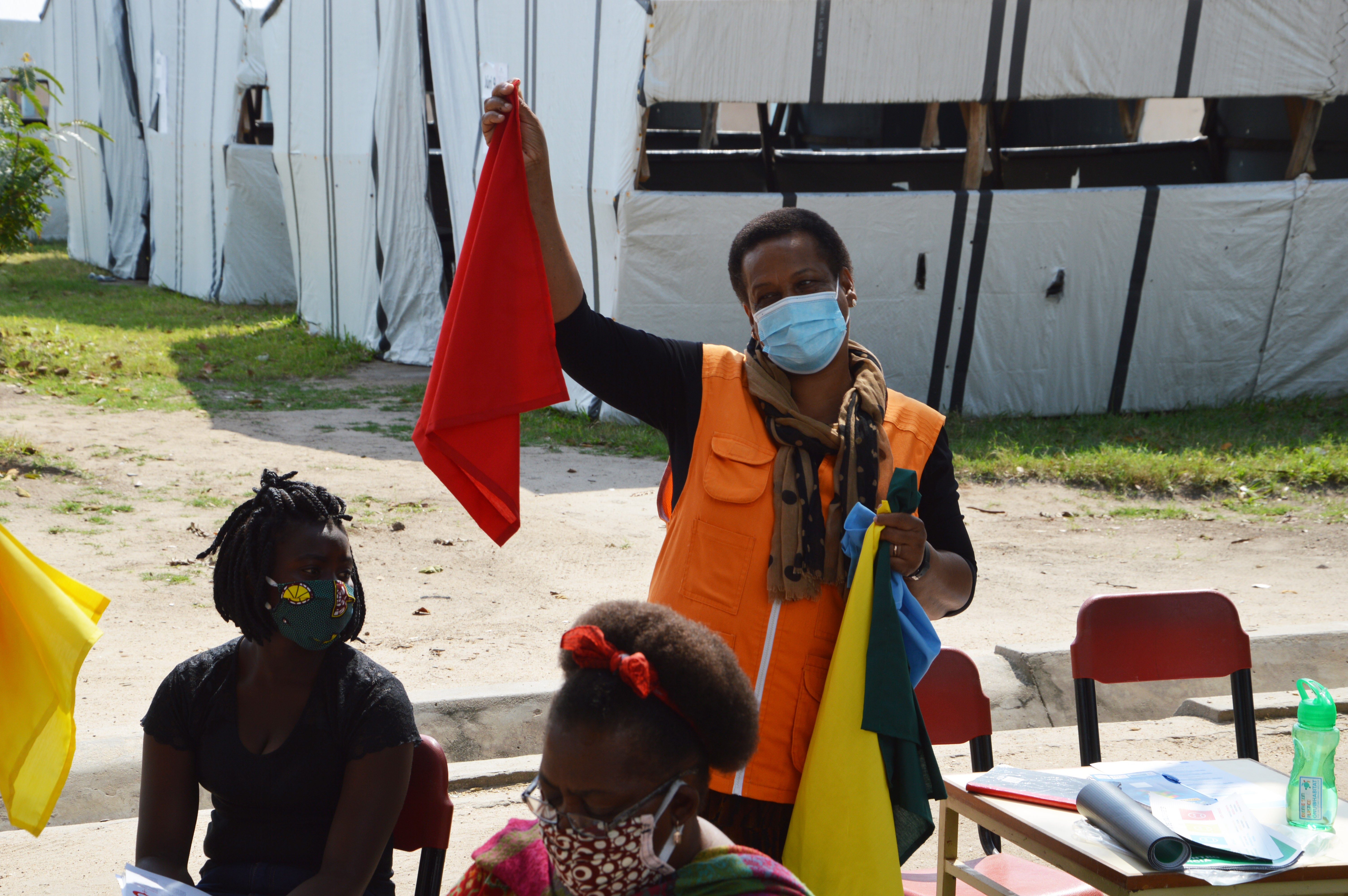Beira, Mozambique, 27 August 2020 - UN-Habitat in Mozambique has adapted its activities on disaster risk reduction in schools to respond to the new challenges brought by COVID-19
Because of the pandemic, schools in Mozambique have been closed since March 2020 and a gradual reopening has been announced until 1 October 2020, with the implementation of new COVID-19 preventive measures such as reducing the number of students in the classrooms, as well as a series of hygiene measures. These new rules are particularly challenging in the central region, as most of the schools are still recovering from Cyclone Idai, which struck the country in March 2019. UN-Habitat is adapting the implementation of the Basic Emergency School Plan (BESP) to include prevention and preparedness to COVID-19.
UN-Habitat, in partnership with UNICEF, has been implementing the BESP in schools across the country since 2015 reaching more than 40 schools to date. Thanks to the support of the European Civil Protection and Humanitarian Aid Operations - ECHO and the Education Cannot Wait Fund, capacity trainings and direct implementation of the BESP began on 5 August 2020 in the central region in the Districts of Dondo, Gondola and Chimoio.
The BESP’s main objective is to implement a plan that will prepare schools for potential disasters and emergencies. This is particularly essential in Mozambique as it is one of the countries most vulnerable countries to climate change in Africa suffering from increasingly intense climate shocks.

“When Idai came, we didn’t have a tool like the BESP to prepare ourselves. Many of the things I learned today on disaster preparedness I didn’t knew at the time, every school should have access to this tool.” says Sergio Gove, Headmaster of Dondo’s Secondary School.
The BESP implementation is an inclusive and participative process and to ensure its sustainability and efficiency, all the school community- headmasters, teachers, parents, community, and students, including the youngest ones- must be involved. All these actors will be part of an Emergency Management Committee and together will define each one’s responsibility to prepare in case of an emergency as cyclone, flood, and now COVID-19.
One of the components of the BESP trainings is to ensure access to information to school community members and, with the support of the National Disasters Management Institute (INCG), train them on the different types of emergency alert. “When Cyclone IDAI came, a lot of people didn’t have proper information or didn’t believe that a cyclone of this magnitude was coming. I am sure that now if it happens again everyone, including the school, will properly prepare” says Valnice Antonio, primary school teacher of 5 de Julho School in Dondo.
As the virus continues to spread in Mozambique, UN-Habitat’s team has included the participation of a School Health Specialist frm the District Education Departments to integrate preventive and preparedness measures to COVID-19 in the trainings. “Some of the parents are a little scared to send back their kids to school, but I think if we are prepared, we will be able to protect ourselves and go back to study again.” says Isabel, a 16 year-old student from Dondo’s Secondary School and member of the Emergency Management Committee.
UN-Habitat and UNICEF will continue the capacity trainings and BESP implementations throughout the cyclone affected regions of Sofala, Manica and Cabo Delgado and the entire country, to ensure resilient schools and communities for a safe and uninterrupted access to education.